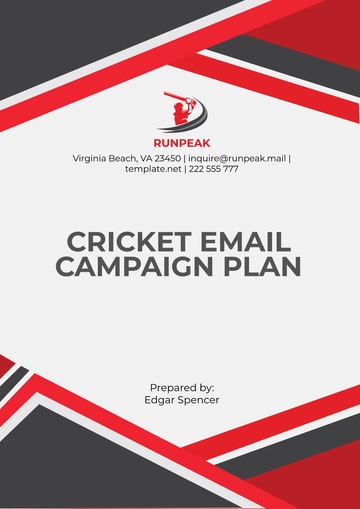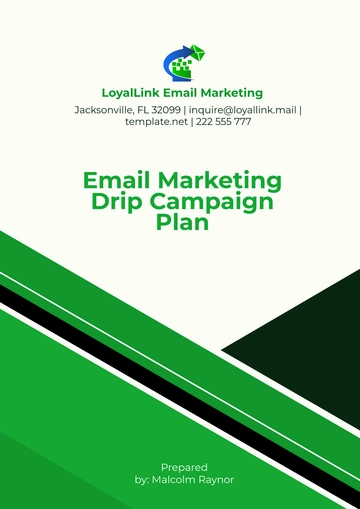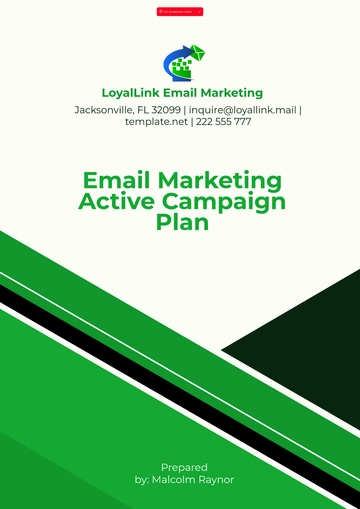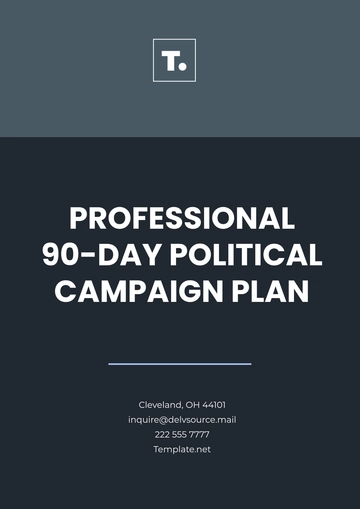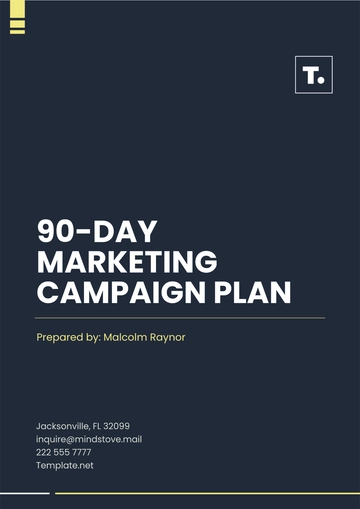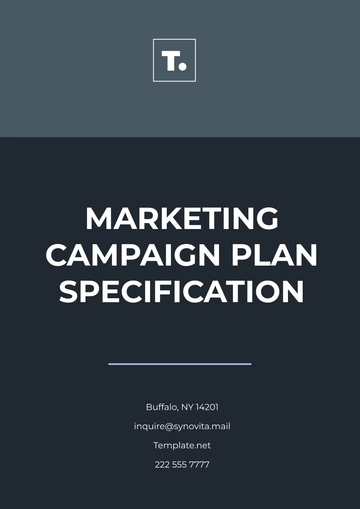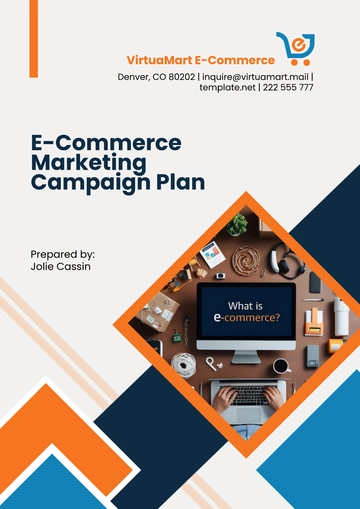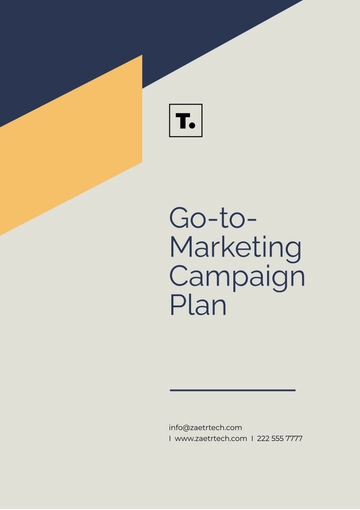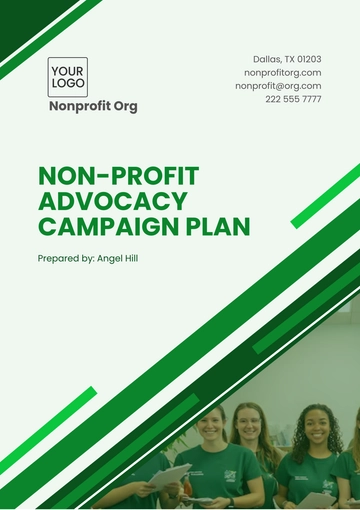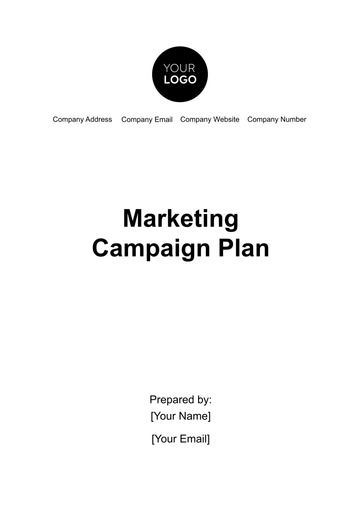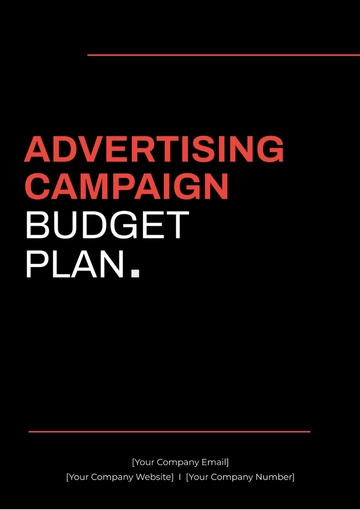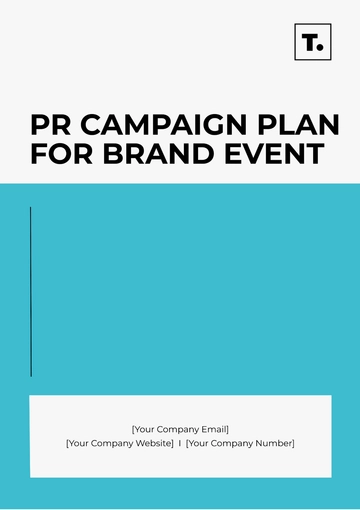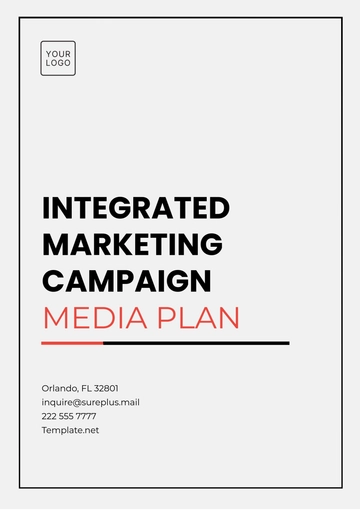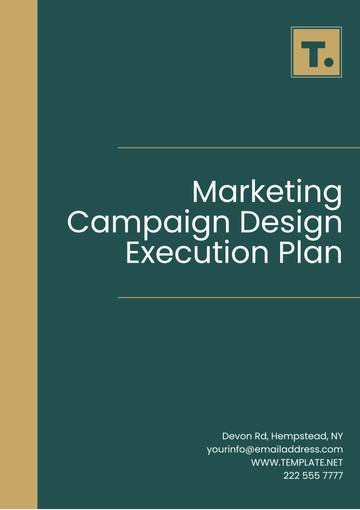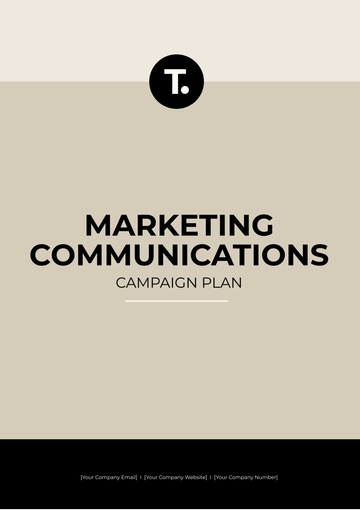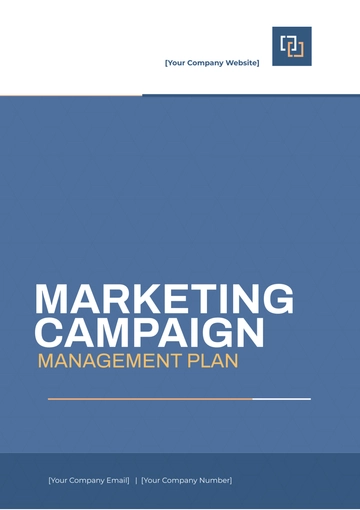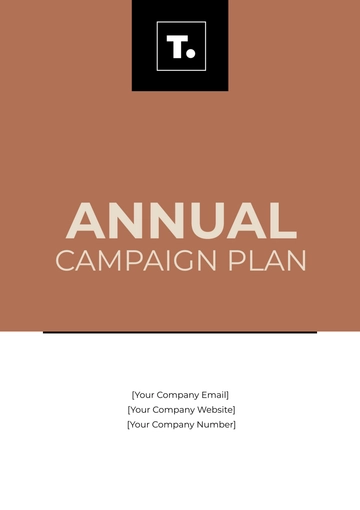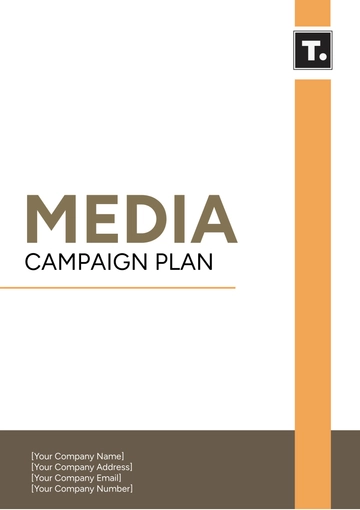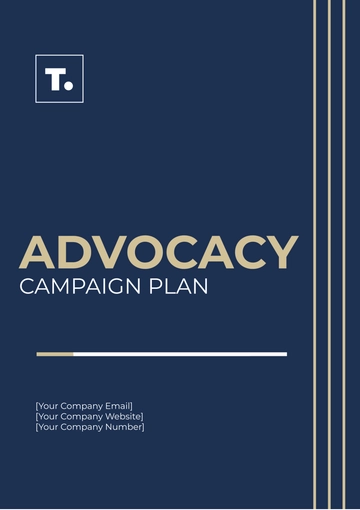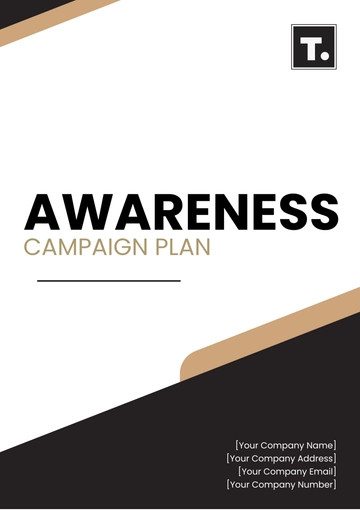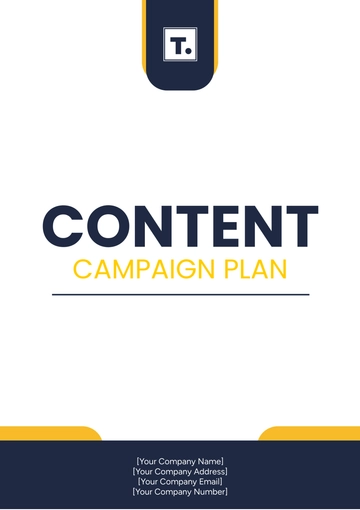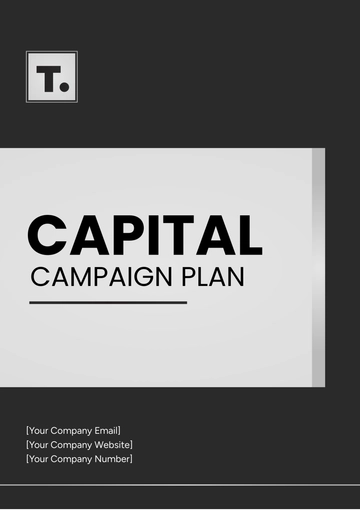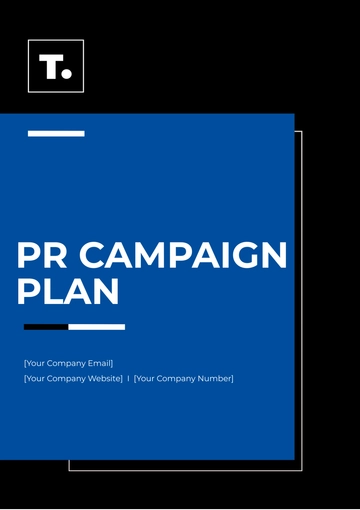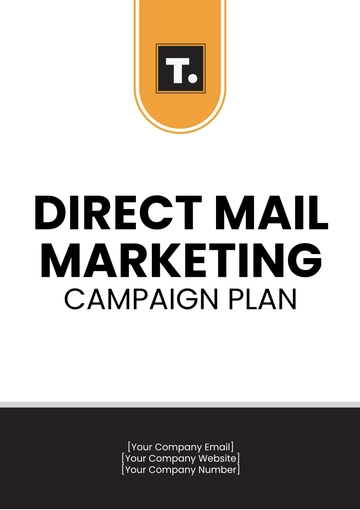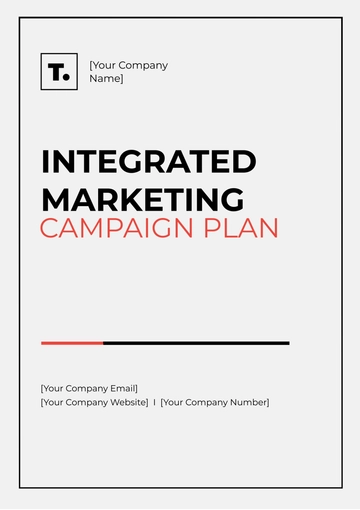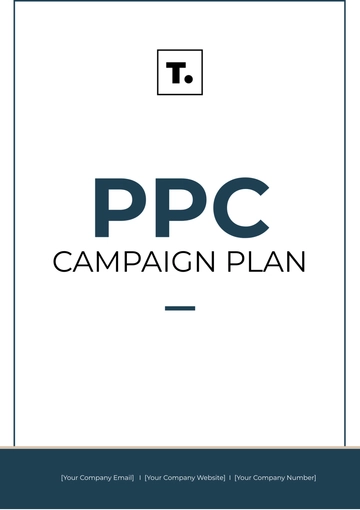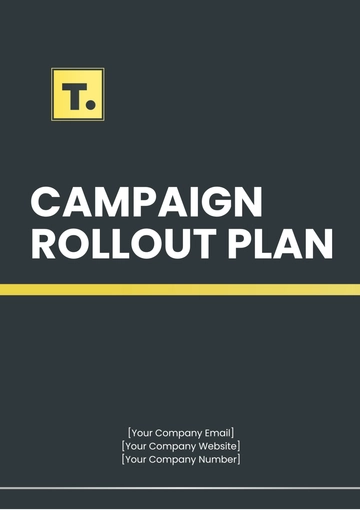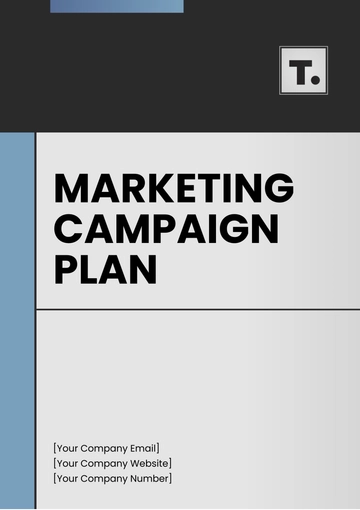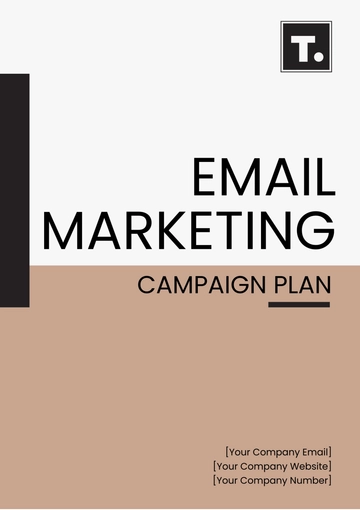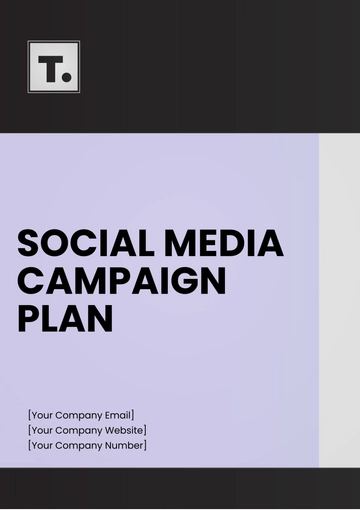Free Brand Campaign Plan
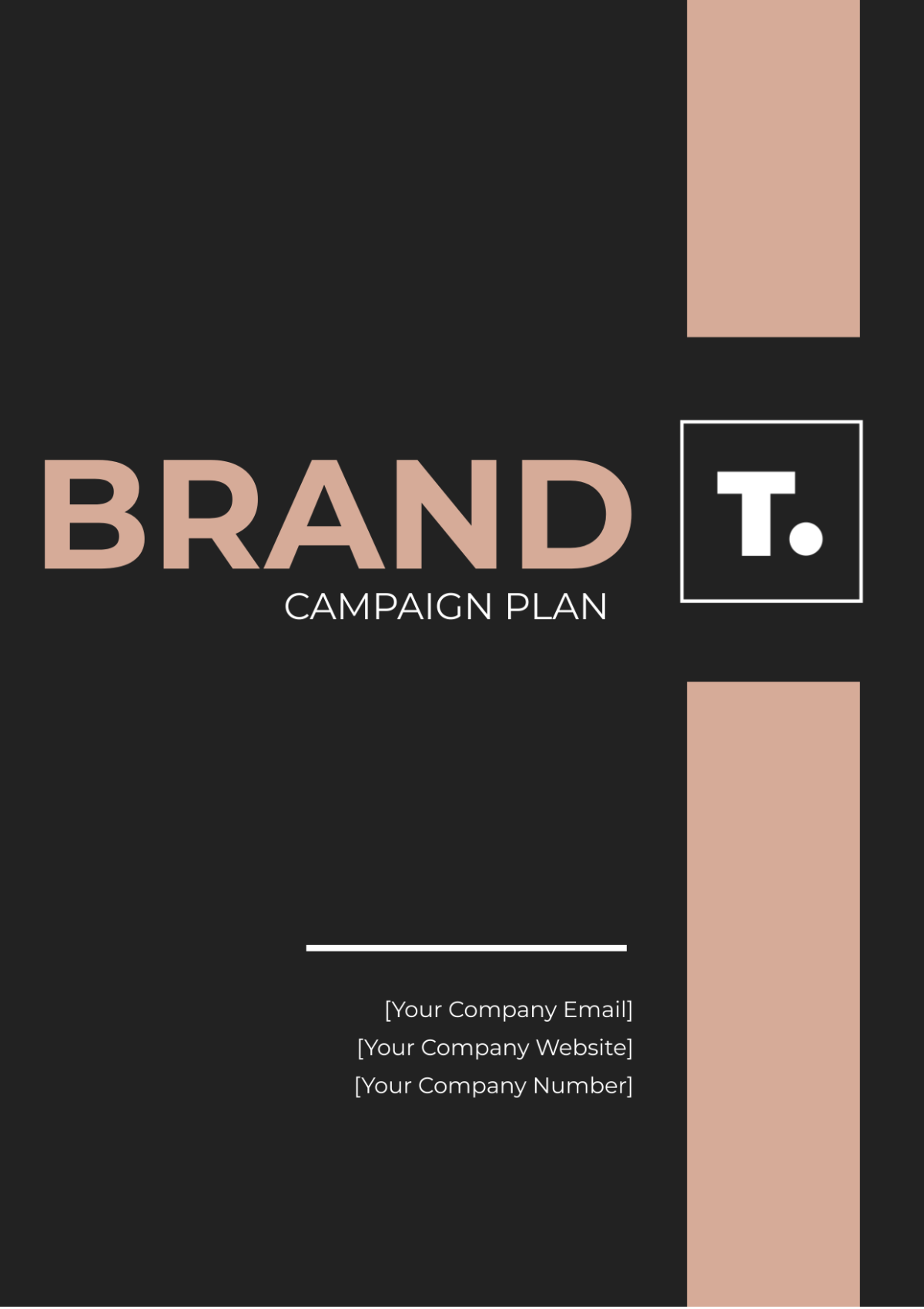
I. Executive Summary
The Brand Campaign Plan aims to enhance the visibility, reputation, and market positioning of [Your Company Name]. Through strategic actions and targeted strategies, we will strengthen the brand's identity and connect with our target audience effectively. The campaign will focus on conveying a consistent brand message across various channels to resonate with our audience and drive brand loyalty.
II. Brand Objectives
A. Brand Awareness
Increase brand visibility among the target audience by 30% within 12 months.
Improve brand recognition and recall through consistent and engaging content.
B. Brand Perception
Enhance brand reputation and credibility by featuring industry experts and testimonials.
Position the brand as a leader in the tech innovation sector.
III. Target Audience
A. Demographic Information
Age: 30-55
Gender: All
Location: Urban and suburban areas in [Geographic Location]
Income Level: $75,000 - $200,000 annually
Occupation: Professionals in tech, business, and innovation sectors
B. Psychographic Information
Lifestyle: Busy professionals seeking convenience and quality.
Values: Sustainability, innovation, and reliability.
Interests: Technology, lifestyle enhancement, and personal development.
Challenges: Time constraints, desire for work-life balance, and information overload.
IV. Brand Messaging
A. Core Message
Communicate the unique value proposition and essence of [Your Company Name].
B. Supporting Messages
Highlight key brand attributes and values.
Showcase product/service benefits and advantages.
Establish an emotional connection with the audience.
V. Promotional Tactics
A. Content Marketing
Branded Content: Create engaging blog posts, videos, and infographics to educate and entertain the audience.
Social Media Campaigns: Develop interactive and shareable content to increase brand awareness and engagement.
B. Influencer Partnerships
Identify Influencers: Collaborate with influencers who align with our brand values and target audience.
Sponsored Content: Partner with influencers to promote our products/services authentically.
C. Events and Sponsorships
Event Sponsorships: Sponsor industry events and conferences to increase brand visibility and networking opportunities.
Hosted Events: Organize branded events and workshops to engage with the community and showcase our offerings.
VI. Budget
Category | Budget Allocation |
|---|---|
Content Marketing | $50,000 |
Influencer Partnerships | $30,000 |
Events and Sponsorships | $40,000 |
Branding Materials | $20,000 |
Total | $140,000 |
VII. Timeline
Task | Start Date | End Date | Responsible Person |
|---|---|---|---|
Campaign Planning | [Start Date] | [End Date] | Marketing Director |
Content Creation | [Start Date] | [End Date] | Content Team |
Campaign Launch | [Start Date] | [End Date] | Marketing Manager |
Monitoring & Optimization | [Start Date] | [End Date] | Analytics Team |
Campaign Evaluation | [Start Date] | [End Date] | Marketing Director |
VIII. Performance Metrics
A. Key Performance Indicators (KPIs)
Brand Awareness: Measure brand mentions, social media reach, and website traffic.
Target: 30% increase in mentions and traffic.
Engagement Metrics: Track likes, shares, comments, and interactions on social media platforms.
Target: 25% increase in engagement.
Conversion Rate: Evaluate the percentage of leads who convert into customers.
Target: 10% conversion rate.
Customer Satisfaction: Monitor customer feedback and satisfaction scores.
Target: 85% satisfaction rate.
B. Analytics Tools
Social Media Analytics: Utilize platform insights on Facebook, Instagram, Twitter, etc.
Website Analytics: Use Google Analytics to track website traffic and user behavior.
Surveys and Feedback: Collect customer feedback through surveys and reviews.
IX. Evaluation and Review
Conduct a thorough analysis of campaign performance against KPIs.
Gather feedback from stakeholders and target audience.
Identify areas of improvement for future campaigns.
Document learnings and best practices for future reference.
X. Conclusion
The Brand Campaign Plan outlines a strategic approach for [Your Company Name] to elevate its brand presence and perception in the market. By executing this plan, we aim to achieve our brand objectives and establish a strong connection with our target audience, ultimately driving long-term brand success.
- 100% Customizable, free editor
- Access 1 Million+ Templates, photo’s & graphics
- Download or share as a template
- Click and replace photos, graphics, text, backgrounds
- Resize, crop, AI write & more
- Access advanced editor
Strengthen your brand with Template.net's Brand Campaign Plan Template. This editable and customizable template, easily accessible in our Ai Editor Tool, helps you craft comprehensive strategies to enhance brand visibility and reputation.
You may also like
- Finance Plan
- Construction Plan
- Sales Plan
- Development Plan
- Career Plan
- Budget Plan
- HR Plan
- Education Plan
- Transition Plan
- Work Plan
- Training Plan
- Communication Plan
- Operation Plan
- Health And Safety Plan
- Strategy Plan
- Professional Development Plan
- Advertising Plan
- Risk Management Plan
- Restaurant Plan
- School Plan
- Nursing Home Patient Care Plan
- Nursing Care Plan
- Plan Event
- Startup Plan
- Social Media Plan
- Staffing Plan
- Annual Plan
- Content Plan
- Payment Plan
- Implementation Plan
- Hotel Plan
- Workout Plan
- Accounting Plan
- Campaign Plan
- Essay Plan
- 30 60 90 Day Plan
- Research Plan
- Recruitment Plan
- 90 Day Plan
- Quarterly Plan
- Emergency Plan
- 5 Year Plan
- Gym Plan
- Personal Plan
- IT and Software Plan
- Treatment Plan
- Real Estate Plan
- Law Firm Plan
- Healthcare Plan
- Improvement Plan
- Media Plan
- 5 Year Business Plan
- Learning Plan
- Marketing Campaign Plan
- Travel Agency Plan
- Cleaning Services Plan
- Interior Design Plan
- Performance Plan
- PR Plan
- Birth Plan
- Life Plan
- SEO Plan
- Disaster Recovery Plan
- Continuity Plan
- Launch Plan
- Legal Plan
- Behavior Plan
- Performance Improvement Plan
- Salon Plan
- Security Plan
- Security Management Plan
- Employee Development Plan
- Quality Plan
- Service Improvement Plan
- Growth Plan
- Incident Response Plan
- Basketball Plan
- Emergency Action Plan
- Product Launch Plan
- Spa Plan
- Employee Training Plan
- Data Analysis Plan
- Employee Action Plan
- Territory Plan
- Audit Plan
- Classroom Plan
- Activity Plan
- Parenting Plan
- Care Plan
- Project Execution Plan
- Exercise Plan
- Internship Plan
- Software Development Plan
- Continuous Improvement Plan
- Leave Plan
- 90 Day Sales Plan
- Advertising Agency Plan
- Employee Transition Plan
- Smart Action Plan
- Workplace Safety Plan
- Behavior Change Plan
- Contingency Plan
- Continuity of Operations Plan
- Health Plan
- Quality Control Plan
- Self Plan
- Sports Development Plan
- Change Management Plan
- Ecommerce Plan
- Personal Financial Plan
- Process Improvement Plan
- 30-60-90 Day Sales Plan
- Crisis Management Plan
- Engagement Plan
- Execution Plan
- Pandemic Plan
- Quality Assurance Plan
- Service Continuity Plan
- Agile Project Plan
- Fundraising Plan
- Job Transition Plan
- Asset Maintenance Plan
- Maintenance Plan
- Software Test Plan
- Staff Training and Development Plan
- 3 Year Plan
- Brand Activation Plan
- Release Plan
- Resource Plan
- Risk Mitigation Plan
- Teacher Plan
- 30 60 90 Day Plan for New Manager
- Food Safety Plan
- Food Truck Plan
- Hiring Plan
- Quality Management Plan
- Wellness Plan
- Behavior Intervention Plan
- Bonus Plan
- Investment Plan
- Maternity Leave Plan
- Pandemic Response Plan
- Succession Planning
- Coaching Plan
- Configuration Management Plan
- Remote Work Plan
- Self Care Plan
- Teaching Plan
- 100-Day Plan
- HACCP Plan
- Student Plan
- Sustainability Plan
- 30 60 90 Day Plan for Interview
- Access Plan
- Site Specific Safety Plan
